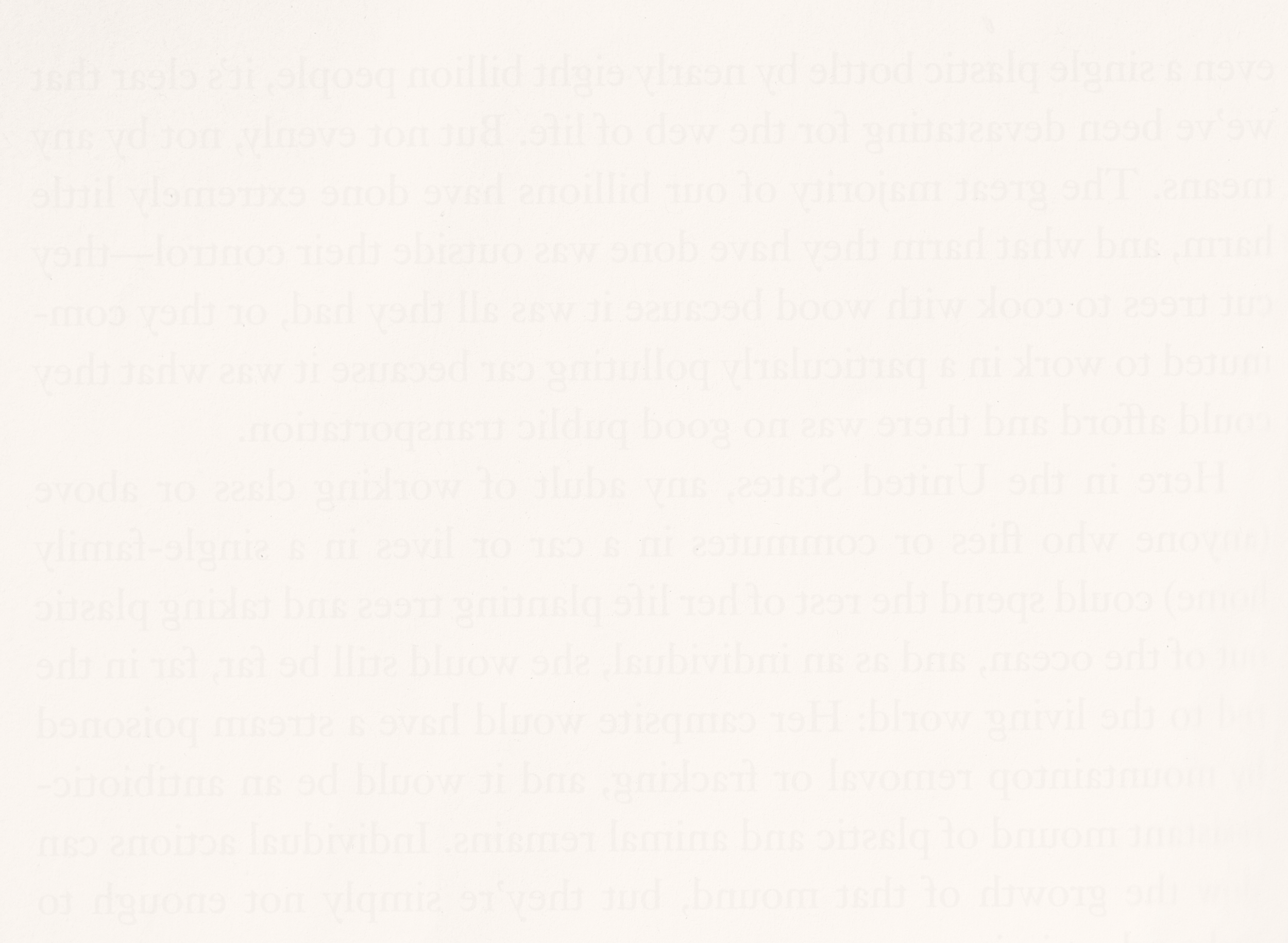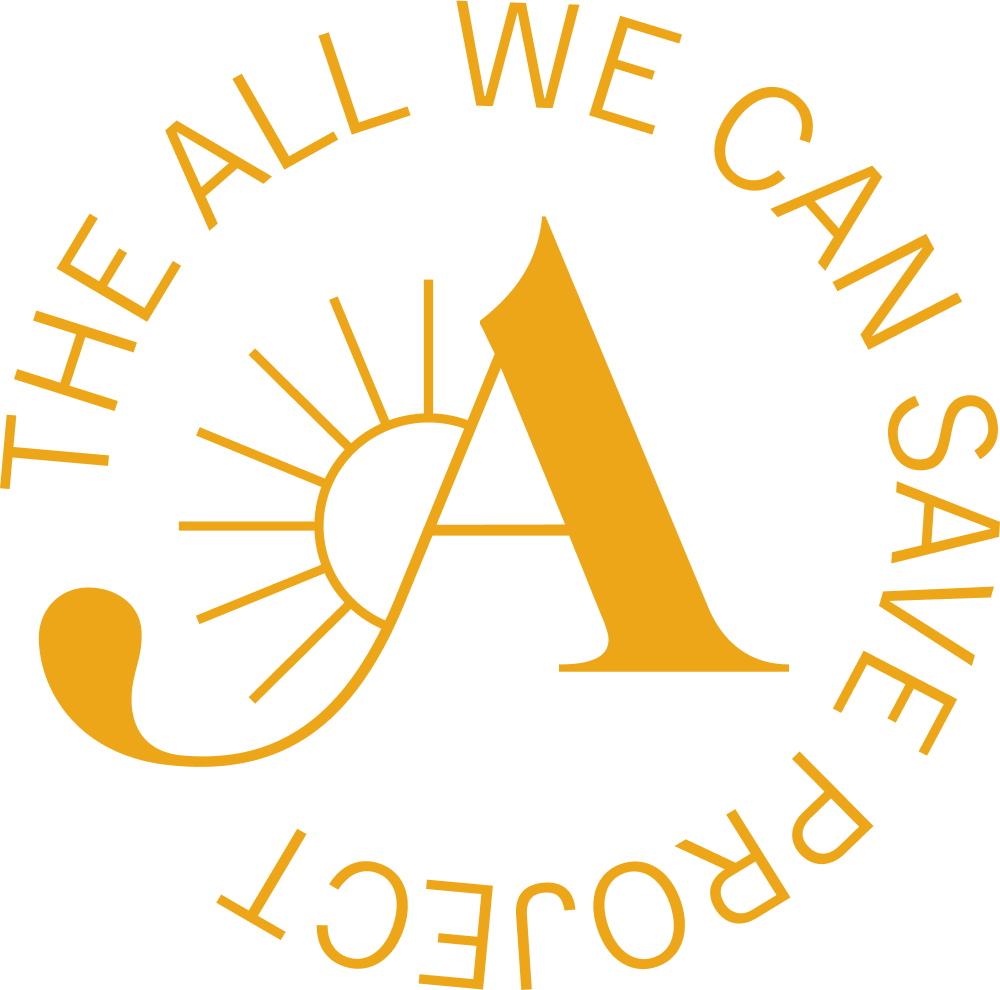
FAQ
Frequently Asked Questions
About the Project
-
Our mission is to nurture the leaderful climate community we need for a life-giving future. To do that, we have a few resources we recommend as a place to start:
Start building climate community
Circles are a free, open self-led framework of 10 sessions that follow the course of the All We Can Save anthology. They’re designed to nurture connection, encourage generous dialogue, and seed action for climate solutions.
Start a Circle →
Keep up with us
Each month, we send out a short message designed to nourish, sustain, and fortify everyone who is working towards a life-giving future. You can expect art, poetry, and key updates on our work.
We announce new resources, courses, and events there first.
Sign up for our newsletter→
-
Check out our jobs page for any open positions. We’ll also be sure to share news of any new positions in our newsletter.
-
The Project was co-founded by Dr. Katharine Wilkinson and Dr. Ayana Elizabeth Johnson, who also co-edited the anthology. The Project and the anthology were both born out of a longing for climate leadership that is justice-centered, heart-centered, and rooted in the work and wisdom of women.
Some of our work at The All We Can Save Project begins with the All We Can Save anthology, including our free small-group organizing resources All We Can Save Circles and our educator resources for bringing climate justice into the classroom. You can read more about our current programs here.
All royalties from All We Can Save support the work of The All We Can Save Project. Contributors to the anthology aren’t involved in the ongoing work of the Project, though you’ll see periodic collaborations on events, courses, and the like.
-
You can send us a donation to support our ongoing work; our donation page is here. You can also subscribe to our newsletter and share with friends, and follow us on Instagram, Twitter, and Linkedin.
-
For speaking requests for Dr. Wilkinson, please reach out to Stern Speakers. For general speaking inquiries, email us at info@allwecansave.earth.
-
Our use of “women” is always open, expansive, and trans-inclusive. Trans, non-binary, and gender nonconforming people are an essential part of climate leadership and climate feminism, and climate feminist solutions to the climate crisis must prioritize queer and trans liberation.
About the Anthology
-
A great place to start is to dig into select sources from All We Can Save here. There are also additional resources from each of the book’s contributors in the Circles materials.
-
Yes! We have a suite of free, open resources for using the anthology in the classroom, including a big bank of discussion questions, assignment ideas for students to take action or use their voice, and heaps more. You can find them all on our educator resources page.
-
We recommend contacting your local bookseller to explore options. Porchlight Books can also be a good resource for bulk orders.
-
Penguin Random House has desk and exam copies available! Request them here.
About Circles
-
Caring about the climate crisis can be incredibly isolating. Polling tells us climate conversations are few and far between, yet we know folks are hungry for deeper, more generous dialogue on the topic and to circle up in ways that connect, nourish, and seed action. All We Can Save Circles are designed to meet those needs, using the book as a grounding and jumping off point. This kind of work is vital to grow and strengthen any movement for social change.
-
Each Circle is a self-organized small group committed to reading the All We Can Save anthology together over the course of 10 sessions. The aim is to foster meaningful conversation and allow every voice to be heard. A Circle can be as small as 3-4 people, but 6-10 people is probably the sweet spot. If you want to go bigger, do it! Your Circle is your oyster.
-
Circle leaders are the connective tissue. You’ll invite friends, family, colleagues, and/or fellow good-troublemakers to be part of a Circle; coordinate when your Circle will meet; and lightly facilitate each session (more on that below). If leading solo seems daunting, invite someone to co-lead with you. If you’d rather not facilitate all 10 Circle sessions, you can rotate the facilitator role among your group. When you’re ready, please sign up here.
-
While All We Can Save was created by women, Circles are for everyone! They’re shoring up folks who’ve been in the work a long time and helping those newer to climate find their place. Please extend an invitation to whomever makes sense — friends, family, colleagues, collaborators, etc. If you would welcome folks into your Circle, please share that via Twitter and/or Instagram, tag @allwecansave, and we’ll amplify. You can do the same if you’re looking to join (rather than lead) a Circle.
-
Yes! In the places we work, critical climate-related decisions are being made and meaningful climate action is possible. What’s often missing is a sense of community, trust, and sustenance — the bread and butter of All We Can Save Circles. So, we teamed up with our friends at Drawdown Labs to tailor Circles for use in the workplace.
Within the Circles facilitation materials, you’ll find “workplace explorations” that offer a series of prompts to uncover and reflect on what’s happening on climate in your organization. These explorations build towards a “what’s next” session designed for the workplace, to support colleagues in taking action together.
-
All We Can Save is really rich. We suggest that Circles meet once a week over 10 weeks (for a more immersive experience) or once every other week over 20 weeks (to allow more time for reading and reflection).
Each time, you’ll delve into one section of the anthology. You’ll likely want ~75-90 minutes together for each session, depending on the size of your group. These are just recs, so do what works best for your Circle!
-
The Circles content is evergreen, so start at the earliest date that works for your group.
-
This may vary from Circle to Circle. To our mind, if you create a space in which people arrive at a deeper understanding, bring their whole selves to the conversation, and clarify what role they can play in the climate space, that’s a win-win-win.
The vast majority of folks who’ve completed Circles report feeling a sense of community/belonging, engaging in exploration/growth, emerging more inspired/hopeful, and taking diverse actions as a result. (According to the end-of-Circle survey we use, 94% of participants have taken action in some way!)
-
Lots. Here are a few tidbits:
“This is the most amazing experience I’ve ever had with a book.”
“They really are a living embodiment of the heart of the book — the collaborative relational energy is tremendously healing and generative.”
"I’m astounded by how transformed and motivated I feel to do more after reading this book and participating in the Circle, and not out of fear but out of love."
“It literally changed my life and made me feel seen and heard in a way I never have before. I finally feel like I have a place in the climate movement.”
-
Sign up at this link, and look out for an email from us. Then, extend an invitation, asking folks to join your Circle. If you can include diverse perspectives, your Circle will be stronger for it. Determine when you’ll meet, in what form (via zoom? in person? or…?), and make sure everyone has access to the book.
Feel free to share this info to help answer any questions. Once you’re ready to start, you can find guides for each session here.
Support our work.
Together, we are equipping thousands of climate leaders from all backgrounds with the perspective, capacities, and community they need to engage meaningfully on climate, for the long term.


